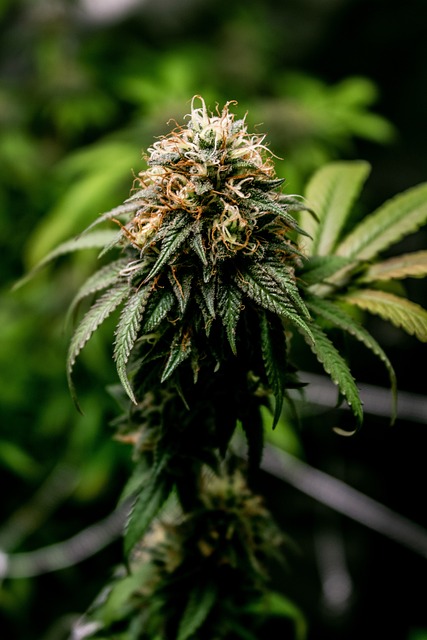THCA, a non-psychoactive cannabinoid found in Cannabis sativa and the precursor to THC, is legally available in Connecticut under state law that permits THCA flower containing less than 0.3% delta-9-THC by dry weight. Known for its medicinal properties and therapeutic benefits such as pain relief and anti-inflammatory effects, THCA has gained popularity as an alternative to psychoactive substances among consumers and researchers in Connecticut. Its legal status in the state facilitates both commercial activities and research, with Connecticut's favorable climate and strict regulatory framework supporting local growers to produce high-quality THCA-rich flowers. These flowers can be consumed through various methods, including smoking, vaporizing, and edibles, offering a health-focused, non-impairing option for those seeking relief from conditions like chronic pain. As part of the state's medical marijuana program and with an eye toward adult-use cannabis, THCA is recognized for its potential in both therapeutic and economic spheres within Connecticut's evolving cannabinoid landscape.
Explore the intricacies of THCA flower, a non-psychoactive cannabinoid that’s garnering attention for its potential health benefits. This comprehensive article delves into the science behind THCA, its legality in Connecticut, and the nuances of cultivating and consuming it within state laws. From its chemical makeup to the entourage effect with other cannabinoids, learn how THCA differs from its psychoactive counterpart, THC, and why it’s becoming a focus in medical research and the retail market. Understanding THCA legal status in Connecticut is crucial for consumers and producers alike, ensuring compliance while navigating this emerging industry. Join us as we unravel the full spectrum of THCA flower, its effects, and the innovations driving its accessibility and acceptance.
- THCA Flower: A Comprehensive Overview
- The Chemical Structure of THCA and Its Significance
- THCA vs. THC: Understanding the Differences
- THCA Legal Status in Connecticut: What You Need to Know
- Cultivating THCA-Rich Flower in Connecticut
THCA Flower: A Comprehensive Overview
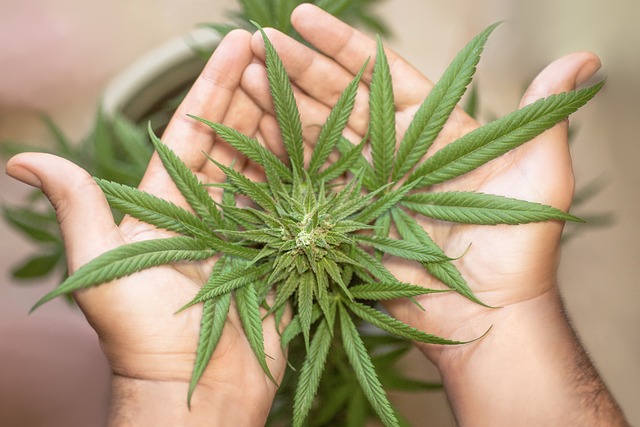
THCA, or Tetrahydrocannabinolic Acid, is a non-psychoactive cannabinoid found in the Cannabis sativa plant that retains strong medicinal properties. As of the current regulations, THCA flower is legal in Connecticut under specific conditions, with possession and sale allowed for products containing less than 0.3% delta-9-THC on a dry weight basis. The THCA molecule is the precursor to THC, the psychoactive compound most are familiar with, but unlike its activated form, THCA interacts with the body’s endocannabinoid system without the psychotropic effects. This has made it particularly attractive for individuals seeking the therapeutic benefits of cannabis without the high.
The THCA flower is gaining popularity among consumers and researchers alike due to its diverse potential applications. It is often used in various consumption methods, including smoking, vaporizing, and infusion into edibles. The flower’s raw state preserves more of the cannabinoids and terpenes in their natural form, which can offer a broader range of effects. In Connecticut, where the legal landscape is favorable, THCA flower is being explored for its potential in treating a variety of conditions, from chronic pain and inflammation to neurological disorders. The non-psychoactive nature of THCA allows for its use throughout the day without impairment, making it a versatile option for medical patients. As such, the interest in THCA flower as a legal alternative with promising health benefits continues to rise within the state’s legal framework.
The Chemical Structure of THCA and Its Significance
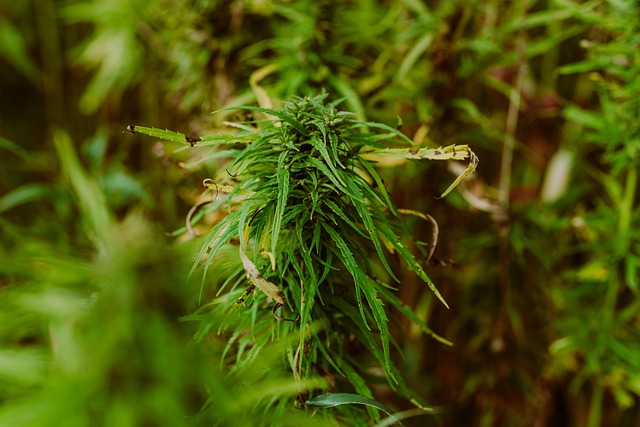
Delta-9-tetrahydrocannabinolic acid (THCA) is the non-psychoactive precursor to the well-known psychoactive cannabinoid, delta-9-tetrahydrocannabinol (THC). The chemical structure of THCA is distinct; it possesses a cyclohexene ring instead of the double bond found in THC. This structural difference means that THCA does not directly interact with the cannabinoid receptors in the same way THC does, thus explaining its lack of psychoactive effects. The presence of this particular ring system and the overall molecular configuration confer upon THCA unique properties. Research has shown that THCA may exhibit anti-inflammatory, anti-nausea, anti-emetic, and analgesic qualities, which are garnering interest for therapeutic applications.
As of the knowledge cutoff in 2023, THCA’s legal status varies across different jurisdictions within the United States. In Connecticut, THCA is considered a legal substance as per the state’s regulations on hemp and hemp-derived compounds. This legality hinges on the source of THCA; it must be derived from hemp that contains less than 0.3% delta-9-THC by dry weight, aligning with the federal Agriculture Improvement Act of 2018, also known as the Farm Bill. The distinction between THCA and THC underlines the importance of clear legal definitions in cannabis research and commerce. As such, the cultivation, processing, and sale of THCA-rich products are permissible within Connecticut’s legal framework, provided they meet the state’s regulatory criteria. This has opened up opportunities for researchers and businesses to explore the potential therapeutic benefits of THCA, contributing to a growing body of knowledge in the field of cannabinoid science.
THCA vs. THC: Understanding the Differences
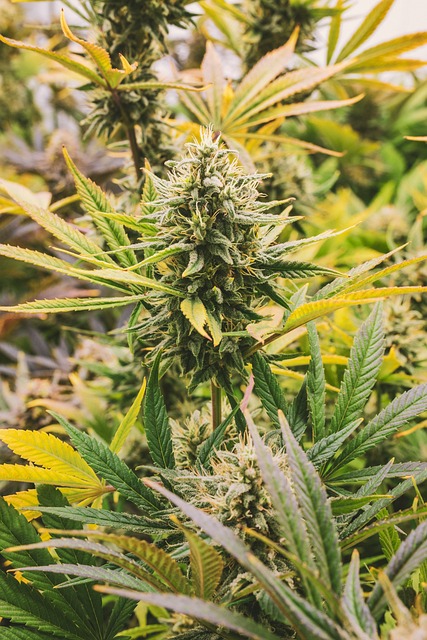
Delta-9-tetrahydrocannabinolic acid (THCA) and delta-9-tetrahydrocannabinol (THC) are both prominent cannabinoids found in the Cannabis sativa plant, but they exhibit distinct properties and effects. THCA is the acidic precursor to THC, which forms when cannabis trichomes are exposed to heat or light. In its raw form, THCA is non-psychoactive and has a different set of therapeutic potentials. It’s often found in raw cannabis plants or flower, which can be legally consumed under certain state laws, such as those in Connecticut, where possession of THCA-rich hemp products is permissible provided they contain less than 0.3% delta-9-THC on a dry weight basis.
Unlike THC, THCA doesn’t bind as strongly to the CB1 and CB2 receptors typically targeted by cannabinoids. This difference leads to a unique set of effects. Advocates suggest that THCA may offer anti-inflammatory, neuroprotective, and analgesic properties without the psychoactive ‘high’ associated with its decarboxylated form, THC. Research is ongoing, but initial studies indicate that THCA could be particularly beneficial for individuals seeking relief from pain and inflammation while remaining clear-headed. The legality of THCA in Connecticut and other states underscores the importance of understanding the nuances between it and THC, as it opens up new avenues for consumers to explore the medicinal benefits of cannabinoids without the impairment associated with psychoactive substances.
THCA Legal Status in Connecticut: What You Need to Know
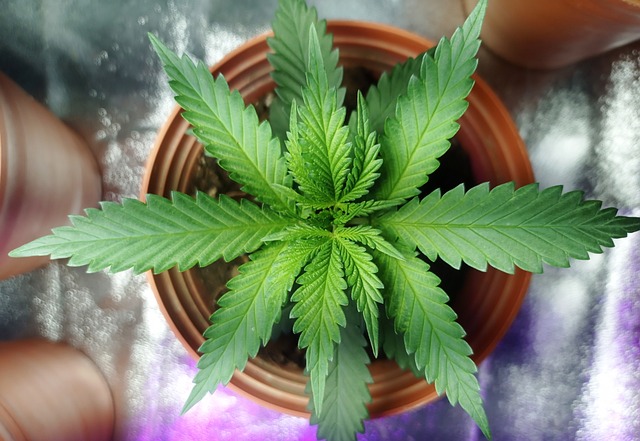
In recent years, the legal status of tetrahydrocannabinolic acid (THCA), a non-psychoactive cannabinoid found in hemp and cannabis plants, has been a topic of interest, particularly within the context of Connecticut’s evolving cannabis laws. As of the knowledge cutoff in 2023, THCA is legal in Connecticut under certain conditions. The state legalized medical marijuana in 2012, which includes products with THCA. However, it’s important to note the specific regulations governing THCA within this framework. For instance, while THCA itself is not intoxicating, it is a precursor to THC and must be handled with care under Connecticut’s medical cannabis program.
The Connecticut Department of Consumer Protection oversees the state’s medical cannabis program, which allows patients with qualifying conditions to possess and use THCA as part of their treatment plan. Patients and caregivers must adhere to possession limits and purchase from licensed dispensaries. The state also passed legislation in 2021 legalizing adult-use cannabis, which will eventually include the sale and use of THCA products, subject to regulatory guidelines and age restrictions. As the legal landscape continues to shift, it’s crucial for consumers and patients to stay informed about the specific laws and regulations concerning THCA in Connecticut to ensure compliance and safety.
Cultivating THCA-Rich Flower in Connecticut
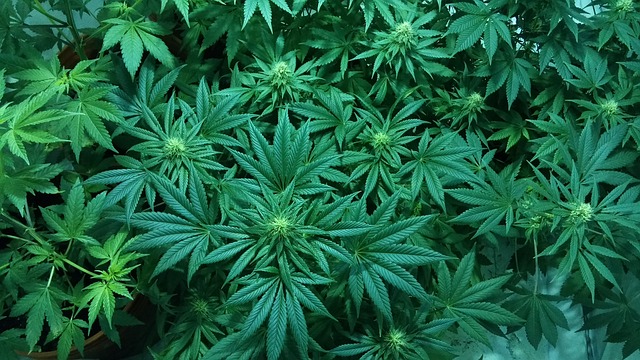
In recent years, the cultivation of THCA-rich flower has garnered significant attention in states where its production is legal. Connecticut, with its evolving cannabis regulations, has opened avenues for growers to cultivate these beneficial plants. The state’s legislature, recognizing the potential therapeutic and economic value of THCA, has established clear guidelines under which licensed producers can legally cultivate THCA-rich flower. These regulations ensure that cultivation practices are sustainable, responsible, and compliant with the laws set forth by the state, promoting a safe environment for both consumers and growers. Growers in Connecticut take advantage of the rich soil and temperate climate to produce high-quality, THCA-rich flowers, which have shown promise in various wellness applications. The cultivation process in Connecticut is meticulously managed from seed to sale, with stringent quality control measures in place to guarantee the purity and potency of the THCA flower. This attention to detail and commitment to adhering to legal frameworks positions Connecticut as a significant player in the THCA-rich market, offering consumers a reliable and high-quality product.
Navigating the intricacies of THCA cultivation requires an understanding of both the biological needs of the cannabis plant and the legal requirements for production. In Connecticut, growers must adhere to specific protocols that dictate everything from planting schedules to harvesting techniques. These protocols are designed not only to maximize the yield and potency of THCA but also to minimize environmental impact and ensure consumer safety. As a result, Connecticut’s THCA flower is highly regarded for its consistency in quality and efficacy, making it a sought-after commodity in both medical and recreational markets where THCA is legal. The state’s commitment to both the science of cultivation and the law has paved the way for a burgeoning industry that promises to be a key component of Connecticut’s agricultural and economic landscape.
THCA flower has emerged as a subject of growing interest, particularly amidst the evolving legal landscape surrounding cannabinoids. This article has delved into its comprehensive nature, elucidating the intricate chemical structure that sets THCA apart and illuminates its potential effects. The comparison between THCA and its psychoactive counterpart, THC, reveals a nuanced understanding of their distinct properties. With a focus on Connecticut’s legal framework, readers now have clarity on the status of THCA, as outlined in ‘THCA Legal Status in Connecticut: What You Need to Know.’ Furthermore, insights into cultivating THCA-rich flower in the state offer a practical guide for those interested in this emerging market. As THCA continues to carve its niche within legal boundaries, it becomes increasingly apparent that its potential is not only scientifically intriguing but also legally navigable, particularly in states like Connecticut where the law is clear and supportive.
